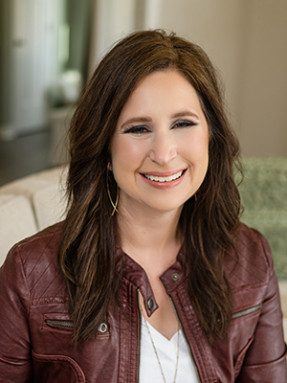This spring, about 45% of home sellers said they believed the housing market was headed for a crash in 2022, according to a study from Clever Real Estate. To boot, Google Trends data shows a significant spike in searches for the term “housing bubble.” Doomsday fears are mounting as record-high home prices make more consumers and real estate professionals nervous that the market may be overheated.
But “we almost surely are not” in a housing bubble, says James McGrath, co-founder of the New York–based real estate brokerage Yoreevo. Still, he’s been fielding concerns from clients lately about how a slowing economy could impact real estate. Most leading housing economists agree that the market isn’t in bubble territory. While home prices have never been higher, the market today is considerably different than in 2008 during the last housing crash. So, arm yourself with some talking points to help answer your clients’ questions about the state of the market and calm their concerns.
For one, instead of a housing surplus, like there was in 2008, the nation is facing a severe inventory shortage. Homebuilders put more than 2 million housing units a year into the pipeline in the years leading up to the 2008 bubble and were overbuilding at the time, notes Lawrence Yun, chief economist for the National Association of REALTORS®. “Today, it is exactly the opposite,” he says. “The country is still facing historically low inventory levels and low rental vacancy rates that are the consequences of multiple years of underproduction.”
But how about those surging home prices? After all, the median price of an existing home was $407,600 in May—the first time ever that this figure exceeded $400,000, according to NAR data. Have some markets overheated? Possibly. But economists put it into perspective: A 5% price correction in, say, places like Phoenix could be possible—but that comes after about a 50% price gain in just the last two years. “Even if there were to be a localized price correction, it will not cause harm to the [overall] housing market or to the financial banking system,” Yun says. “Some buyers will simply view it as a second-chance opportunity to get into the market after being outbid by others over the past two years, and the balance sheets of the banking industry are quite strong. So maybe prices would adjust downward—or maybe not. Let it be because it doesn’t really matter this time.”
Housing dynamics remain strong, even as the double-digit price appreciation we’ve become accustomed to begins to slow. NAR predicts the pace of price appreciation to moderate to about 5% or 6% by the end of the year.
Let’s Talk About It
You may hear comments from clients like: “I’m worried about buying. This is a housing bubble.” Here are some tips and talking points to consider:
- Don’t dismiss fears. Many homeowners remember the 2008 housing crash, when they may have seen their own home’s value plummet or lost their property to foreclosure. Many millennials, who are the strongest homebuying force today, watched their parents struggle to keep up with their mortgage payments, scaring them off their own homeownership path. Their concerns about a “housing bubble 2.0” may come from a deep place, so acknowledge their fear and let them know that their feelings are legitimate.
- Mortgages are structured differently. The kind of subprime lending that was blamed for the 2008 crash is a much smaller and more regulated part of the market today. “The lenders and regulators do not want to make the same mistake of lending to people who cannot repay the mortgage,” Yun says. “Therefore, the credit scores of mortgage approvals have been high.” The typical credit score for a mortgage borrower was a near-record 776 in the first quarter of 2022. During the Great Recession, it dipped to 707. Plus, for adjustable-rate mortgages, which have fluctuating interest rates over a set period of years, borrowers nowadays must show they can afford the fully reset rate, says Glenn Brunker, president of mortgage servicer Ally Homes.
- Housing inventories remain low. The nation is roughly 3 million homes short of meeting buyer demand, Freddie Mac estimates. NAR has called for a “once-in-a-generation response” to the supply crisis. About 1.2 million single-family housing starts are predicted for 2023—still far from the 2 million–plus in the early 2000s, according to Statista data. Yun says housing inventory likely will remain an issue for years to come.
- Buyer demand isn’t sapped. Purchasing a house is the top accomplishment postgraduate students aspire to achieve—more than getting a successful job, getting married, having a baby, or traveling, according to a Grand Canyon University survey. “There is still too much real demand and too little inventory,” McGrath says about the state of the housing market. “Affordability has taken a hit with higher [mortgage] rates, but people still want to buy homes.”
- Real estate can be a hedge against inflation. Locking in a fixed-rate mortgage now will protect homeowners against future increases in housing prices. Such an opportunity doesn’t exist when you’re renting, and rental prices have climbed drastically over the last year. Plus, renting doesn’t offer the ability to build equity.
- A market correction is not the same as a crash. The housing market has showed recent signs of slowing. But “based on present evidence, there is no expectation that a fallout from a housing correction would be comparable to the 2007–09 global financial crisis in terms of magnitude or macroeconomic gravity,” a group of Dallas Fed economists wrote this spring.
Some markets may experience a moderate decrease in home prices as the market readjusts. In June, more than 40% of home sellers dropped their asking price in places like Salt Lake City; Boise, Idaho; Sacramento, Calif.; and other Western hot spots, according to Redfin data.
Homebuying costs have increased $800 every month this year due to higher mortgage rates and home prices, according to Nadia Evangelou, NAR’s senior economist and director of forecasting. The 30-year fixed-rate mortgage, which averaged 2.9% just a year ago, was at 5.51% for the week ending July 14, according to Freddie Mac. “Rising interest rates and buyer fatigue from bidding wars have caused the market to stabilize and return closer to normal, but the market still favors home sellers,” says Scott Orich, a sales associate with Flyhomes in San Mateo, Calif.
Orich has been talking to his home sellers about the importance of pricing their home right for the changing market. “Be more realistic with your expectations, and be patient,” Orich says. “The mad rush of multiple buyers is over.”
Even though the rise in mortgage rates is certainly bracing for house hunters, a large group of buyers is “more focused on buying a home—and hopefully at a slightly more reasonable price than they’d pay three or six months ago,” McGrath says. Also, “they want to be confident they’re not buying into a repeat of 2008.” And you can help them understand that they are not.





